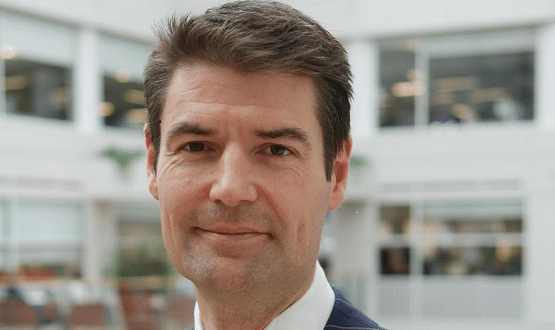It’s been quite a year for health technology, with the Covid-19 pandemic changing views about digital across all healthcare organisations. Dr Simon Eccles, CCIO for NHSX, reflects on the findings of the 2020 NHS IT Leadership Survey.
Like an unexpectedly thoughtful gift from a godparent, the Digital Health 2020 NHS IT Leadership Survey hit our inboxes this week. It is a much needed shot in the arm at the end of an especially challenging year.
Everyone I speak to in the health IT world says they’ve never worked so hard or so fast, and it has been amazing to be part of this collective endeavour.
The achievements of this year have clearly been something to celebrate as optimism about the future is at an all time high of 89%, reflecting our collective wish to see all lessons learned from our Covid response this year carried through into digital improvements in 2021.
The survey picks up the significant service changes that the NHS has made over the last 10 months, not least in the provision of video consultation and the necessary underpinnings to enable a huge rise in remote consultations of all types.
Local IT teams truly stepped up to the plate and that is reflected in the positive scores for how well local infrastructure supported these changes. Only 9% of respondents reported that their IT infrastructure hindered their ability to shift to mobile and remote working.
We need to provide help to those organisations, but I suggest that figure is less than many of us would have guessed a year ago. It is also striking how the Covid pandemic has shown the real need for shared care records and increased staff support for these.
I’m also struck by the apparently significant shift in board attitudes to digital, and their readiness to see it as the solution to clinical delivery challenges. One of the biggest changes seems to have been that the urgency and necessity of action had allowed boards to overcome their fear of digital projects (cited by 63%).
The most frequently cited project for this year are upgrades or replacements to EPR systems (44% of respondents), again emphasising the need to get the core elements right. As we move to having Integrated Care Systems as the core of how we operate, local record sharing will be even more important.
The other area which will prove most helpful during the recovery phase will be online triage, in all respects. The pandemic is causing a significant backlog of clinical activity, both for direct care, treatment, and for the diagnostic tests which underpin these. The ability to husband our resources and prioritise cases will be very important and digital triage can really help here. Some 33% of respondents to the survey reported they already have it.
It will be critical to build on the good work achieved over this year as we move into 2021. I don’t see the NHS returning to its previous way of working, even if Covid ceases to be an issue.
Staff like working from home, at least part of the time, and patients prefer remote consultations for a significant proportion of appointments. We have work to do to make this easier, to access all test results as needed, to prescribe remotely from all settings and, of course, to have appropriate access to shared care records.
NHSX has recently published a revised version of our information governance guidance and we are working on the other enablers as fast as we can.
The other notable aspect of the survey is that we all have work to do to encourage, nurture and promote a truly inclusive and diverse workforce. At the centre we need to set a visibly good example, and our CIO Sonia Patel is leading our work with Health Education England to professionalise NHS IT leadership.
Can I also state my thanks to the Shuri Network and to OneHealthTech for all of their work.
2020 was an exceptional year, in every way and, like many, I am really looking forward to moving on to 2021. The Covid pandemic really accelerated the uptake and acceptance of digital and the survey results show how our NHS IT Leadership have responded to this. We owe you a debt of gratitude, thank you.


21 December 2020 @ 15:35
It’s great to have Simon’s view as he has been in the NHS IT leadership for such a long time.
The Public Accounts Committee report
https://publications.parliament.uk/pa/cm5801/cmselect/cmpubacc/680/68002.htm
seemed to make it more likely that NHSX structure / function would be revisited, especially if the Secretary of State were to be reshuffled.
Would be great to know what Simon thinks about this.